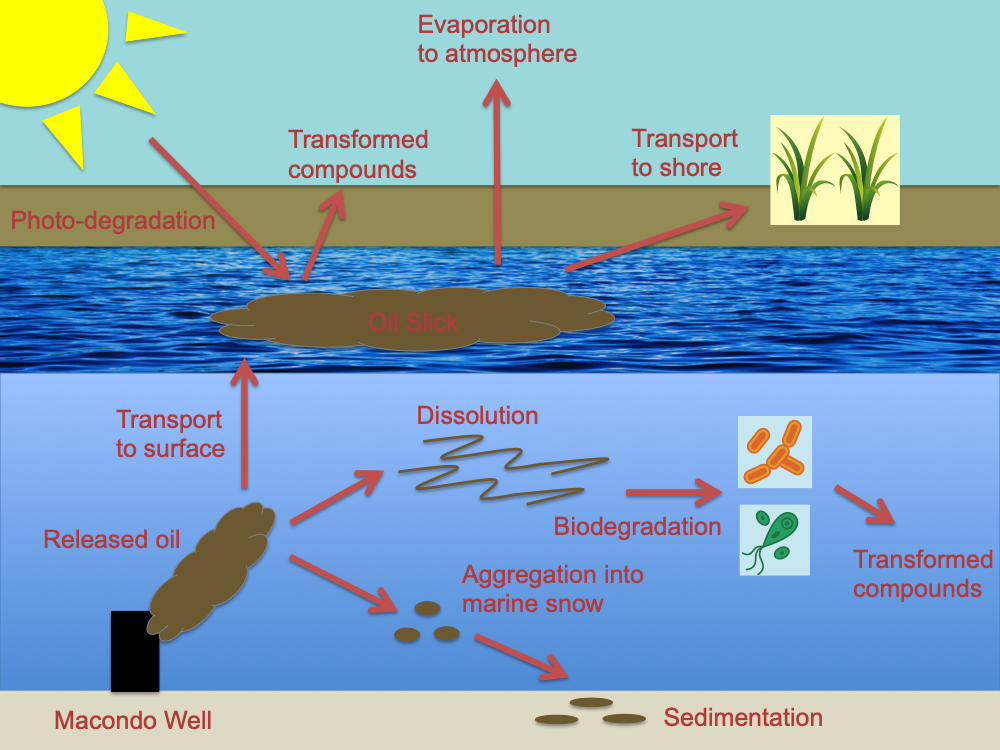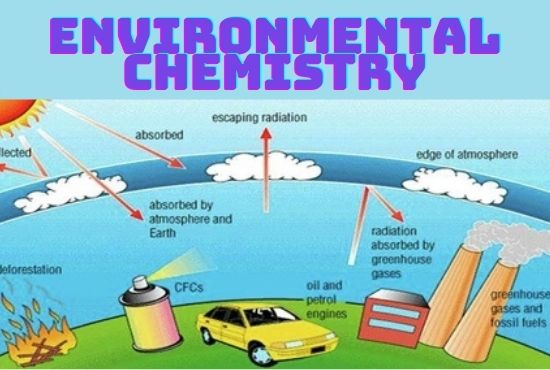Environmental Chemistry Study Guide
INTRODUCTION
The Earth is made up of a variety of small substances and particles that are involved in processes that result in the development of new ones. As a result, the earth is regarded as a closed system in which energy enters and exits the globe while the majority of the mass remains on the surface. This indicates that all of the components on earth are recycled continually within the environment. Consider the possibility that free oxygen molecules floating in the sky yesterday may have ended up in someone’s burger the very next day. All of these movements and reactions taking place in our environment are studied under the discipline of environmental chemistry.
WHAT IS ENVIRONMENTAL CHEMISTRY?
Environmental chemistry is a field of chemistry that studies the chemical and biological activities that take place in the natural world. We also research the impact of human actions on the environment in environmental chemistry.
SCOPE OF ENVIRONMENTAL CHEMISTRY
- Environmental chemistry is a research field that employs a variety of methodologies from biology, arithmetic, genetics, toxicology, and other fields to help find answers to all environmental concerns.
- Environmental chemists are in charge of figuring out how the uncontaminated environment works and developing environmentally friendly methods of development.
WHAT IS CONTAMINATION?
When there are undesired chemical compounds present in the atmosphere, the environment is contaminated. In reality, environmental chemistry is primarily concerned with the investigation of these undesirable chemicals and their consequences.
Small contaminants: Metal particles that can be readily monitored and managed are known as small pollutants.
Chemical Contaminants: Pollutants are those that are created as a result of chemical processes. They pollute the air, water, and soil.
Gaseous contamination: Contamination of the gaseous atmosphere by substances such as sulfur causes this sort of pollution.
Microbial contamination: This is one of the most harmful forms of pollution since it affects both the environment and the biological systems inside it. Microbes such as bacteria, fungus, and viruses are to blame.
APPLICATION OF ENVIRONMENTAL CHEMISTRY
- Environmental chemistry investigates all of the chemicals’ risk aspects in depth in order to provide a solution for environmental safety.
- It is used in the research of novel goods and their environmental consequences.
- Environmental chemistry is often used to safeguard groundwater that has been contaminated by dirt, dust, and waste particles.
- It is effective for protecting surface water from contamination via sedimentation, microbiological, and radiation processes.
- The quality of the soil is safeguarded by environmental chemical measures, including the use of ecotoxicological and chemical markers.
- Waste Management uses environmental chemistry.
CONCLUSION
- Environmental chemistry is a field of chemistry that studies the chemical and biological activities that take place in the natural world.
- Environmental chemistry is primarily concerned with the investigation of these undesirable chemicals and their consequences.
FAQs
1. What is the environment?
The environment refers to all of Earth’s physical surroundings. Everything living and non-living is included in the environment. The atmosphere, hydrosphere, and lithosphere are the three basic components of the non-living environment.
2. What are the 3 types of environments?
The environment may be divided into three categories based on the components:
(1) aquatic environment (marine, including oceans and seas, and freshwater, including lakes and rivers)
(2) terrestrial environment
(3) atmospheric environment (air)
3. Why is the environment important?
Ecosystems that are healthy clean our water, filter our air, sustain our soil, manage the temperature, recycle nutrients, and feed us. They supply raw materials and resources for pharmaceuticals and other uses. They are the bedrock of all civilizations and the lifeblood of our economy.
We hope you enjoyed studying this lesson and learned something cool about Environmental Chemistry! Join our Discord community to get any questions you may have answered and to engage with other students just like you! Don’t forget to download our App to experience our fun VR classrooms – we promise, it makes studying much more fun! 😎
SOURCES
- Environmental Chemistry: https://byjus.com/chemistry/environmental-chemistry/ accessed 14 march 2022
- Environmental Chemistry: https://www.vedantu.com/chemistry/environmental-chemistry accessed 14 march 2022



